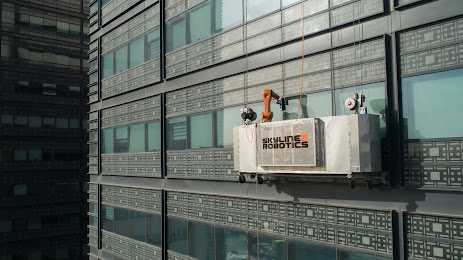I would not, myself, want to hang off the front of a massive high-rise office building, washing windows. I honor those, however, who do this job - and it appears that quite a few people do. According to the
Zippia Website, there are over 12,000 window cleaners in the United States, and a significant number of them, I am pretty sure, do work on high-rise window washing.
Here are some statistics:
Research Summary. Using a database of 30 million profiles,
Zippia estimates demographics and statistics for window cleaners in the
United States. Our estimates are verified against BLS, Census, and
current job openings data for accuracy. After extensive research and
analysis, Zippia's data science team found that:
- There are over 12,244 window cleaners currently employed in the United States.
- 10.6% of all window cleaners are women, while 89.4% are men.
- The average age of an employed window cleaner is 48 years old.
- The
most common ethnicity of window cleaners is White (59.5%), followed by
Hispanic or Latino (20.6%), Black or African American (9.9%) and Unknown
(4.3%).
- Window cleaners are most in-demand in San Diego, CA.
- The construction industry is the highest-paying for window cleaners.
- 5% of all window cleaners are LGBT.
You can
click this link to get the full story. In short, who needs human window washers when robots can do it quicker, better, cheaper?
Historically, of course, there is nothing new about technological advances making some jobs obsolete. One way of looking at it is to decide that the "world of robots," into which we seem to be entering, is just the latest example. Is that a fair evaluation of where we are?
Well, "Yes," and "No," it seems to me.
Human ingenuity is being mobilized, more and more, in an effort to eliminate the need for human beings at all. Some, like
Ray Kurzweil, pursue this goal explicitly, hoping to live long enough to witness the "
singularity," that moment when "there will be no distinction ... between human and machine nor between physical and virtual reality" [Ray Kurzweil,
The Singularity Is Near (New York. Viking USA, 2005), 7].
The more I see what is actually being contemplated, the more I think that I'd like to stick with human beings, instead of trying to replace human beings with machines, or supersede them entirely. It you want to do some thinking about this topic - and it
is a topic worth thinking about - you could do a lot worse than
getting a copy of that book I mentioned - and then reading it!
Image Credit:
https://www.axios.com/newsletters/axios-whats-next-27b2dbc6-9e1a-4665-afaf-9fdc45dac24f.html



No comments:
Post a Comment
Thanks for your comment!